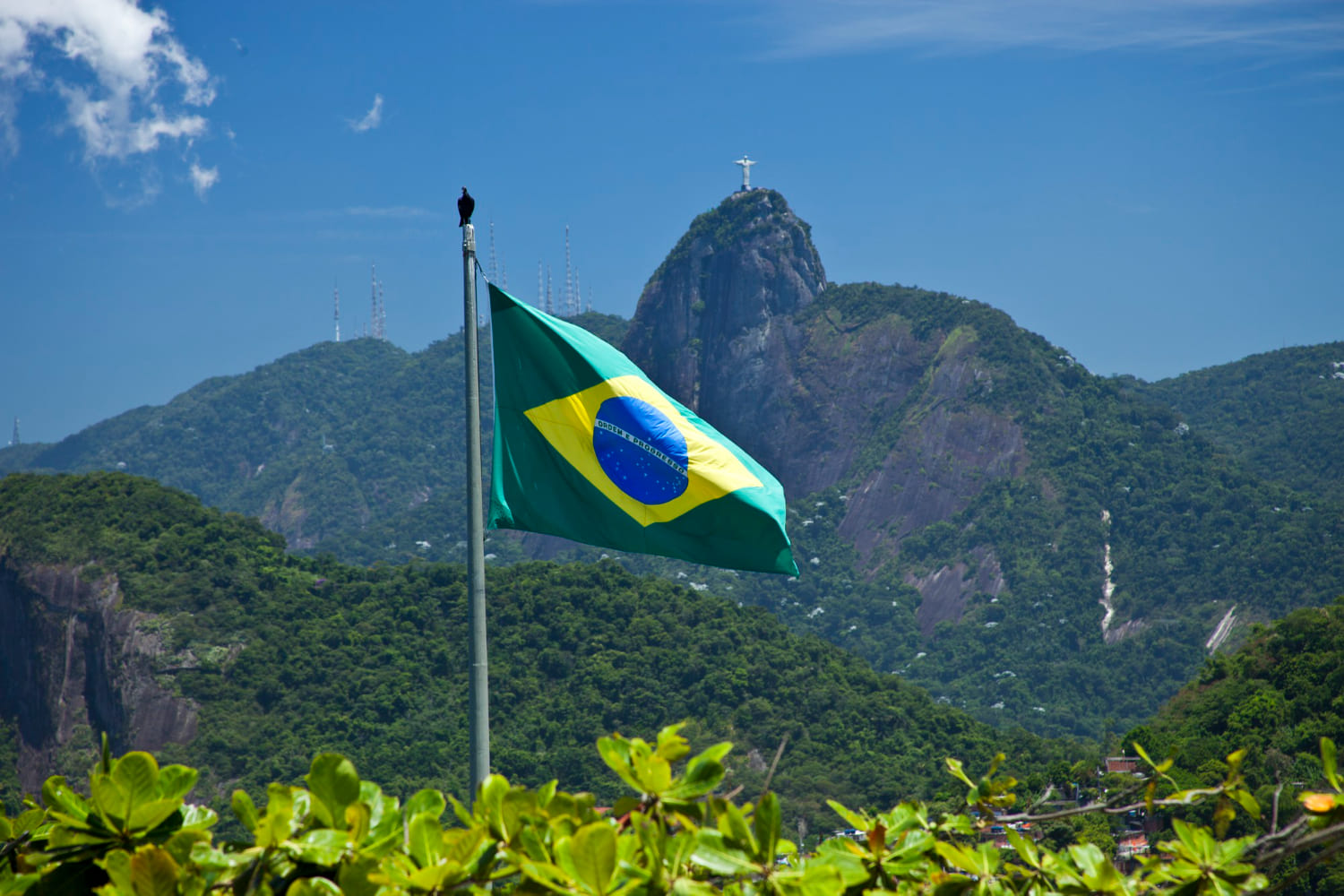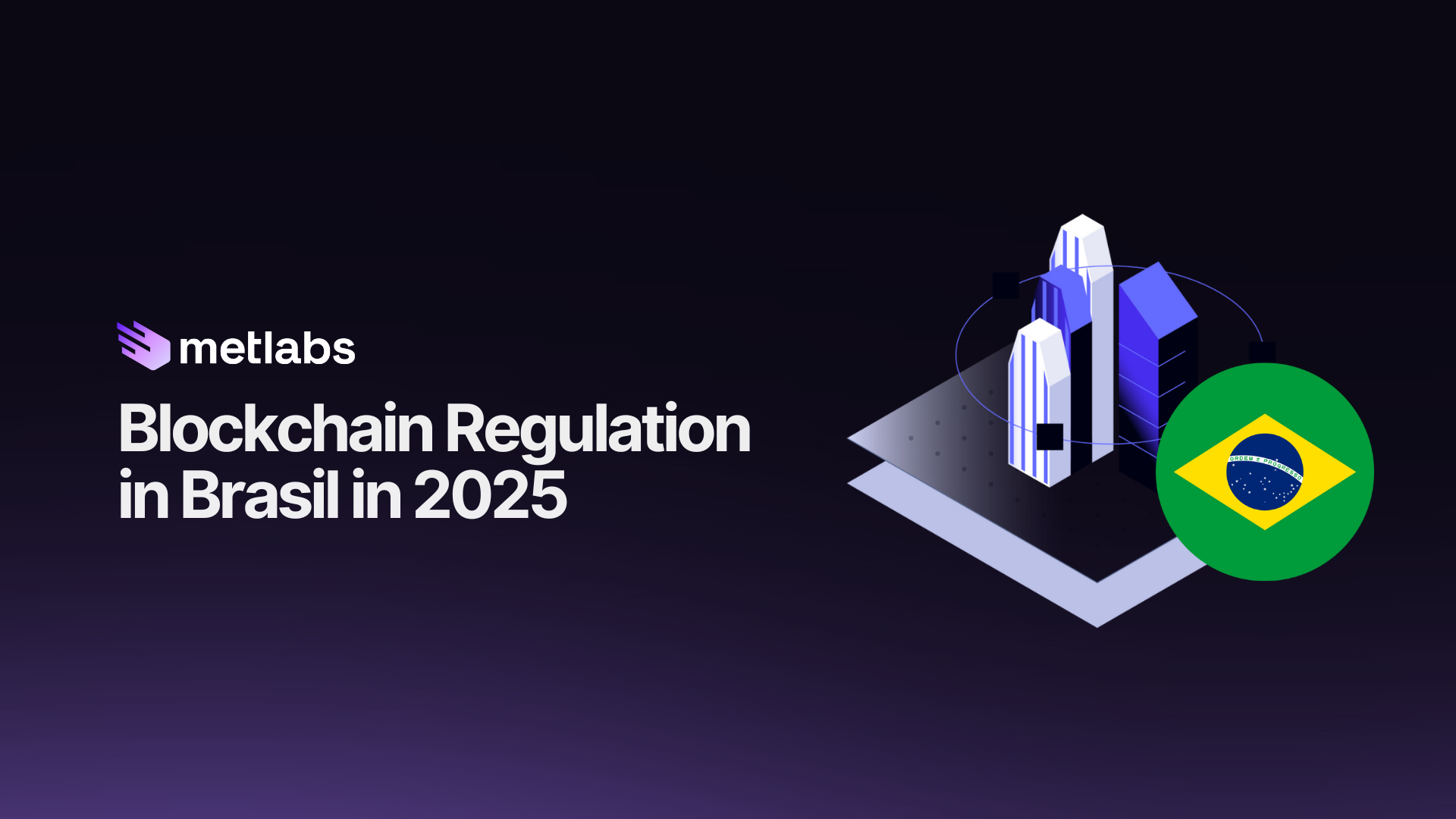The adoption of blockchain technology and asset tokenization is advancing at a rapid pace, but the real engine driving its global development is the existence of a clear, consistent and innovation-friendly legal framework.
Some countries have already established themselves as regulatory benchmarks, establishing specific rules for cryptoassets, DLT infrastructures and token issuance with legal backing. In this article we show you relevant information about blockchain regulation in Brazil, which you can use as a guide if you are looking to operate internationally or evaluate different strategic locations.

Current legislation on blockchain and virtual assets in Brazil
Law No. 14.478/2022 (Legal Framework for Crypto-assets)
This law establishes the general framework for services related to virtual assets in Brazil. It defines the concepts of virtual assets and PSAV, imposes registration, transparency and AML/CFT compliance obligations, and designates the Central Bank of Brazil as the supervisory authority for activities that do not qualify as securities.
CVM Instructions on Securities Tokens
The Securities and Exchange Commission (CVM) regulates tokens that qualify as transferable securities. These must comply with the Securities Market Law, including requirements for public offering, prior authorization, and rules on market transparency and integrity. Issuers and trading platforms are subject to direct supervision by the CVM.
Regulation of the Central Bank of Brazil for Virtual Assets Service Providers (PSAV)
The Central Bank is developing secondary regulations implementing Law 14.478/2022, which is expected to come into force in the first half of 2025. These rules will detail the authorization procedures for PSAVs, prudential requirements, governance rules and user protection, applying to all PSAV activities not covered by the CVM.
AML/CFT regulations applicable to crypto-assets
Brazil has strengthened the framework for the prevention of money laundering and terrorist financing for the virtual asset sector. PSAVs and issuers must implement KYC controls, transaction monitoring and mandatory reporting to the Financial Intelligence Unit (COAF), under standards aligned with FATF recommendations.
Joint regulatory sandbox (BCB, CVM, SUSEP)
The Brazilian regulatory sandbox allows fintech and blockchain companies to develop and test innovative business models in a controlled environment. Overseen by the BCB, CVM and SUSEP, this sandbox fosters regulatory evolution and the creation of blockchain and tokenization-based solutions.
Tokenization makes it possible to digitally represent real-world assets through blockchain, but for it to have legal value, it is essential that there is a regulatory framework that recognizes this operation. Brazil adopts its own approach, establishing specific rules for the issuance, custody or trading of tokens. In this block we explain how asset tokenization is regulated from a legal point of view, taking an advanced jurisdiction such as Brazil as an example.
Regulation of asset tokenization in Brazil
Brazil allows the tokenization of both financial and non-financial assets, under a structured legal framework. Tokens representing transferable securities (shares, debt, fund shares) are regulated by the CVM, which applies the Securities Market Law. They require registration or prior authorization and must be traded on regulated markets or authorized platforms.
Non-financial tokens, such as real estate or commodities, fall under Law 14,478/2022 and the regulatory framework of the Central Bank of Brazil. PSAVs that issue or manage these tokens must be licensed and comply with prudential, transparency and compliance rules. In addition, the regulatory sandbox allows for testing innovations in tokenization and DeFi, with oversight by the financial authorities.
The digital real pilot (CBDC) is also driving the evolution of tokenization in Brazil. Although there is not yet a special regime for DLT infrastructures, Brazilian legislation offers legal certainty to develop tokenization projects in a regulated environment, making Brazil an emerging market for tokenized assets in Latin America.
Regulatory agencies and authorities for digital assets in Brazil
Central Bank of Brazil (BCB)
The BCB is the main supervisory authority of PSAVs, according to Law No. 14.478/2022. It regulates the activities of intermediation, custody and trading of cryptoassets that are not considered securities. In addition, it leads the development of the Brazilian CBDC (digital real) and establishes the prudential, cybersecurity and governance rules for authorized PSAVs.
Comissão de Valores Mobiliários (CVM Brazil)
The CVM supervises tokens that have the nature of marketable securities. It regulates their issuance, public offering and trading, applying the Securities Market Law. Issuers and trading platforms of security tokens must obtain authorization from the CVM and comply with the requirements of transparency, investor protection and good corporate governance.
Financial Activities Control Board (COAF)
COAF is Brazil’s financial intelligence unit. It oversees compliance with anti-money laundering and counter-terrorist financing (AML/CFT) regulations by PSAVs and token issuers. It receives suspicious activity reports, analyzes operations and issues guidelines to strengthen controls in the virtual asset ecosystem.
Launching a business based on digital assets requires more than just technology: it is also necessary to comply with legal requirements such as licensing, registration and regulatory obligations. These conditions ensure that the business model is viable and sustainable over time, and that it meets transparency and fraud prevention standards. In this section we explore what licenses are usually required and what compliance criteria blockchain companies operating in Brazil must follow.

What licenses and requirements are needed to trade cryptoassets in Brazil?
PSAV Brazil License
As of 2024, PSAVs in Brazil that offer cryptoasset exchange, custody, transfer or intermediation services in Brazil must obtain prior authorization from the Central Bank of Brazil. This license requires compliance with governance standards, prudential requirements, operational controls, cybersecurity plans and user protection, in line with international standards.
CVM authorization for securities tokens
Issuers of tokens that qualify as securities, as well as secondary trading platforms for such tokens, must obtain authorization from the CVM. It is mandatory to comply with the requirements of public offering, registration with the Commission and investor protection rules provided for in the Securities Market Law.
AML/CFT compliance
All regulated players in the crypto ecosystem must implement robust anti-money laundering and terrorist financing prevention controls. These include KYC procedures, monitoring of operations, identification of beneficial owners and reporting suspicious activity to COAF. Compliance with these obligations is indispensable to operate legally in Brazil.
Are you exploring developing your blockchain project in Brazil?
At Metlabs we help companies like yours and offer comprehensive support in the development of blockchain projects and tokenization of assets such as real estate, carbon credits, commodities, intellectual property, financial instruments, franchises and more, fully aligned with blockchain regulation in Brazil and international regulatory standards.
Contact us and find out how we can help you meeting all your business model needs, from technical validation and structuring to design, development and implementation of custom blockchain solutions, ready to scale from day one.




